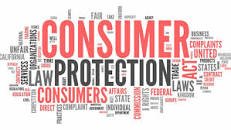List of Consumer Protection Agencies in Nigeria
A customer is a person or company who makes a purchase of goods or services from another firm. Customers are crucial because they generate revenue; without them, organisations would be unable to survive. All businesses compete with one another for customers by aggressively marketing their goods, cutting their pricing to increase their customer bases, or creating distinctive goods and experiences that consumers adore. Think of TikTok, Apple, Tesla, Google, etc.

The secret to a successful seller/customer interaction is customer service, which works to ensure happy encounters. A positive or negative customer service experience can influence loyalty in the form of positive online reviews, recommendations, and future business. Real-time interactions through texting, instant messaging, and other forms of communication have been a part of customer support in recent years. There are a lot of companies on the market that offer the same or almost identical goods and services. Customer service sets one company apart from another and has evolved into the main point of competitiveness for the majority of industries.
Customer protection refers to actions taken to protect buyers of goods and services against unethical business activities by retailers, service providers, and manufacturers. Therefore, by implementing consumer protection measures that are backed by the law, consumer protection agencies stop enterprises from participating in unfair practices intended to gain an advantage over the competition or defraud customers.
Here’s the List of Consumer Protection Agencies in Nigeria
-
FEDERAL COMPETITION AND CONSUMER PROTECTION COMMISSION (FCCPC)
Mandated by Federal authorities to implement measures that include direct complaint engagement, investigations, mediations, and formal hearings when a compelling infringement occurs in order to ensure consumer protection throughout Nigeria. The agency is also involved in the enforcement of laws and the random and targeted surveillance. In order to make sure that manufacturers and service providers uphold integrity, the organisation is also responsible with doing a national quality review of products and procedures. One of the duties of the agency in protecting consumers is to regularly educate consumers and do research to enhance current tools and develop new intervention approaches.
-
STANDARDS ORGANIZATION OF NIGERIA (SON)
This agency is in charge of taking measures to ensure that goods, services, associated procedures, and production materials meet standards to the highest possible degree and are reasonable for their intended use, similar to one another, and functionally equivalent. This is accomplished by conducting tests, such as inorganic, textile, and chemical laboratory tests, among others, to make sure that the guidelines are being followed. In order to encourage the creation of high-quality goods and a healthy level of competition with the goal of fostering consumer confidence in these goods and services, the agency is also tasked with product certification.
-
NIGERIAN CIVIL AVIATION AUTHORITY (NCAA)
This agency is in charge of taking measures to ensure that goods, services, associated procedures, and production materials meet standards to the highest possible degree and are reasonable for their intended use, similar to one another, and functionally equivalent. This is accomplished by conducting tests, such as inorganic, textile, and chemical laboratory tests, among others, to make sure that the guidelines are being followed. In order to encourage the creation of high-quality goods and a healthy level of competition with the goal of fostering consumer confidence in these goods and services, the agency is also tasked with product certification.
-
NIGERIA ELECTRICITY REGULATORY COMMISSION (NERC)
The commission is in charge of regulating the power sector. Its responsibility is to issue operator’s licences to people and companies planning to enter the electricity generation, transmission, distribution, or trading industries. In order to prevent unfair commercial activities, the commission is also tasked with monitoring and enforcing instructions to individuals deemed appropriate in the power market. The commission’s duties include prescribing tariff pricing, resolving disputes between market players through arbitration and other alternative dispute resolution procedures, and issuing licences for the production and distribution of energy for sale.
-
NATIONAL ENVIRONMENTAL STANDARD AND REGULATION ENFORCEMENT AGENCY (NESREA)
This NESREA, which is supervised by the Federal Ministry of Environment, is tasked with enforcing the requirement that plans and projects be evaluated for their potential environmental effects before moving forward with any planned action. In order to safeguard the environment from projects or programmes that can have detrimental effects on the environment, environmental impact assessments (EIAs) are performed. Additionally, NESREA is responsible for prosecuting offenders of illegal wildlife trafficking in Nigeria and enforcing confiscation laws. It also takes action to stop the importation of electronic garbage from abroad.
-
NATIONAL BROADCASTING COMMISSION (NBC)
The Nigerian Broadcasting Corporation (NBC) is under the direction of the Ministry of Information, which has given it the authority to manage and regulate all forms of broadcasting in Nigeria, including radio, television, cable television, direct satellite broadcast, and other media. Receiving, evaluating, and processing applications from prospective enterprises in the broadcasting sector are under the purview of the commission. The commission also gathers data, analyses trend behavior, and applies certain techniques in the broadcasting sector to provide advise to the federal government.
-
CENTRAL BANK OF NIGERIA (CBN)
The nation’s top banking organisation is the Central Bank of Nigeria. It controls all other financial and banking organisations in the nation. The Central Bank imposes regulations on the banking sector, including the necessity for cash reserves.
When it comes to deposits, capital requirements, and deposit insurance, a bank must maintain stability in order to protect customers who use its services from failure. Therefore, as the CBN directs the Nigerian Deposit Insurance Commission (NDIC), the financial resources of the clients are not impacted in the event that any of these banks fail.